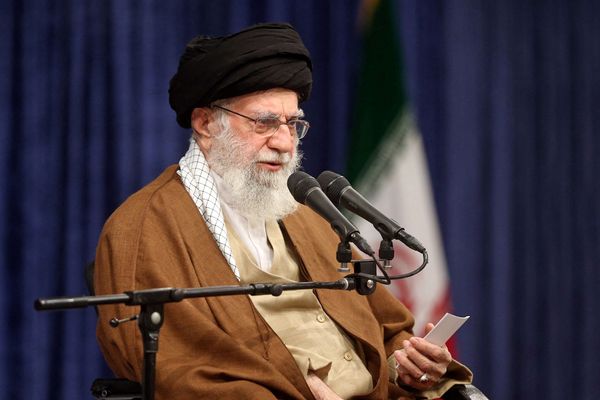(This is the latest edition of the Political Line newsletter curated by Varghese K. George. The Political Line newsletter is India’s political landscape explained every week. You can subscribe here to get the newsletter in your inbox.)
There are three broad views regarding the salience and relevance of the Indian Constitution that are being debated in the country. The first two fear the BJP might change the Constitution, and though they share the fear, their rhetoric is different from each other; the third one clamours for changing the Constitution, and hopes the BJP will do exactly that in the third term. We must note that the Constitution keeps changing — there have been over 100 amendments to it already — and the change that we talk about in this context is fundamental and comprehensive. Prime Minister Narendra Modi engages with only one of these three views on his party’s approach towards the Constitution, and there is a reason for that.
The first, a broad liberal argument with regard to the BJP and its approach to the Constitution, is articulated here by Aruna Roy and Nikhil Dey.
This is largely about the constitutional freedoms for the individual that the authors think are threatened under the BJP. The implication is that there is a shift towards authoritarianism in India under the BJP.
The second is a subaltern argument with regard to the BJP’s approach towards the Constitution — which is that the BJP is trying to end caste-based reservations. This is a potent argument that is resonating with the subaltern castes. Here’s a version of it made by Lalu Prasad.
Mr. Modi does not care much about the liberal rhetoric, unless he is speaking to an international audience. But the subaltern rhetoric is too powerful for him to ignore, and he did respond, by making two points. One is that there will be no change, and nobody can change it, even Dr. B.R. Ambedkar (the Dalit icon and chairman of the drafting committee of the Constitution, who is often invoked in this context), he said. Secondly, he sought to change this debate among the Hindus by proposing it as a Hindus versus the rest scenario by citing the fact that an overwhelming majority of the Constituent Assembly was Hindu. What is notable here is that he is specifically addressing the subaltern castes on the question of their quotas and religious identity.
It is notable that in Roy and Dey’s piece, references to caste are in the negative context. The typical liberal position questions caste, religious and regional identities with broadly the same disdain. The concern of the subalterns is very simple — that the BJP is trying to dismantle the existing reservation system. And that impression, if spread, can be very costly for the BJP. It lost the 2015 Bihar Assembly election solely — in my opinion — on the question of RSS chief Mohan Bhagwat’s call for a debate on reservation. There is enough reporting from across the country about subaltern fears of the BJP trying to end the reservation regime in the country. The implementation of 10% reservation for the Economically Weaker Sections, which in practice is meant only for the upper castes, already spread this argument far enough that Mr. Modi and the BJP are trying to contain it by repeatedly clarifying that there are no such plans.
But it is not easy for them, and that takes us to the third argument, which is originating from BJP leaders and the broader intellectual ecosystem that it has built up in the last decade or so. The liberal and the subaltern fears, though dissimilar, both originate from the same source, which is the third strand of the debate — proclamations made by BJP leaders and thinkers, who are evidently aligned to it. This school of thought that underscores the Indian Constitution and the legal system as colonial, argues for its reformation or replacement with a more indigenous one. They advance a new decolonisation project in the country’s legal and constitutional framework. One influential figure in this camp is J. Sai Deepak and you can get a gist of his views here in this review of a book authored by him.
Now this argument against the Constitution — and even reservation — are both very integral to the Hindutva political ecosystem. That makes it difficult for the BJP to distance itself from it. The party, therefore, let some ambiguity prevail on the question, even while appearing to reassure the subaltern groups that caste quotas will be protected. The liberal criticism that authoritarianism is looming in the country is dismissed by the BJP as yet another elite, alien conspiracy to malign the country. In fact, that accusation has been turned into a campaign point by the BJP — that there will be more changes in order to indigenise the legal system. Effectively, the BJP promises change to one group, and status quo to another group on the question of the Constitution. Evidently, it is only the subaltern fears that scare the BJP.
A comparison between the BJP and the Congress on the question of constitutional and legal changes can be found here. The BJP promises the uniform civil code and implementation of the Citizenship (Amendment) Act.
Federalism Tract - Notes on Indian Diversity
Winning over tribals
The BJP has crafted an elaborate plan that ropes in tribal communities into the Hindutva universe through cultural, material, and governance components. This is a hot button topic during the ongoing Lok Sabha election campaign. While Congress leader Rahul Gandhi has accused the BJP of trying to undermine the unique identity of tribal communities, the BJP continues with its outreach to them, around 8% of the population. Abhinay Lakshman does a deep dive into the intellectual and political components of the BJP outreach to tribespeople in this two-part series. Part One is an analysis of knowledge creation for this by the party and its affiliated organisations, and the Modi government.
Part Two is on how this is playing on the ground, and how some emerging tribal leaders are questioning this.
Divvying up Dalits in Telangana
The Madiga-Mala tussle for greater share in political representation has made the community support up for grabs in SC-reserved constituencies in Telangana. While the ruling Congress is courting the Malas, the BJP and the BRS are trying to woo the sizeable population of Madigas. PM Narendra Modi shared the stage with Madiga Porata Samiti leader Manda Krishna Madiga, who is leading a campaign for SC sub-categorisation. Madigas, who constitute more than half of the SC population, claim that Malas, who are numerically weaker in Telangana, are cornering reservation benefits in the State.







